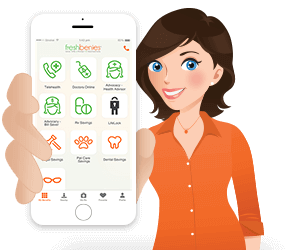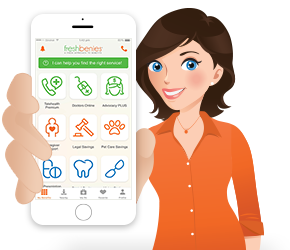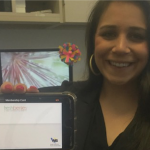WHY DIETING DOESN’T USUALLY WORK (VIDEO)
Did you resolve to lose weight this year? How’s it going? According to statisticbrain.com, 8% of people are successful in achieving their resolutions. That’s the bad news. Unfortunately, I have more bad news in this article!
Why? I recently watched a 12 minute TED Talk where Sandra Aamodt, a neuroscientist and science writer, explored the science behind why dieting doesn't work AND is likely to do more harm than good. Seriously? Like we need one more piece of advice about dieting and weight loss! But, her findings are scientific, helpful and inspiring!
What’s a TED Talk?
First, are you familiar with TED Talks? TED stands for Technology, Education and Design. They hold conferences all over the world with speakers that address a wide range of science and culture topics. Sound boring? It’s NOT! The speakers are given a maximum of 18 minutes to present their ideas in an innovative and engaging way, so they're rarely boring and they really keep your attention because they're short. The website says "1500+ talks to stir your curiosity" and it's very true!
Click the pic above to watch, but here’s a quick breakdown of the key points in her talk….
The Science
As we all know, how much you weigh depends on how much you eat and how much energy you burn (although with the plethora of dieting advice out there, we sometimes forget that it’s as simple as “eat less, move more”, but I digress….).
Regardless of the “perfect weight” you have written on your mirrors and refrigerator, your brain has it’s own sense of what you should weigh (oh, that’s just super!). It’s called a “set point” which is actually a range of 10 – 15 pounds. Studies show that you can use lifestyle choices to move your weight up and down within that range, but it’s difficult to stay outside of that range (oh, that’s even more super!).
When you’re trying to lose weight, your brain uses powerful tools to push your body back to a weight it believes is normal. If you lose a lot of weight, your brain reacts as if you were starving!
People who lose more than 10% of their body weight burn 250 to 400 less calories because their metabolism is suppressed. In order to maintain that weight, you have to eat that much less FOREVER to maintain it! OMIGOSH! I’m so depressed right now!
Of course, this all makes sense from an evolutionary perspective. Throughout history, starvation has been a much bigger issue than overeating. Our ancestors’ survival depended on conserving energy in a food shortage until they could make it to the next time food was plentiful.
But wait! There’s more bad news! Not only is weight loss harder to maintain, a temporary weight gain CAN become permanent. If you gain weight over a matter of years, your brain may just decide that the higher weight is the new normal and begin the war against you to move it down.
This would explain why, five years after a diet, most people have regained the weight - and 40% of people have gained more. In the long run, you’re more likely to GAIN weight on a diet than to lose it.
Girls who diet in their early teenage years are 3X more likely to become overweight 5 years later - even if they started at a normal weight.
OK, we get it…dieting doesn’t work – now what?
The Study
A recent study looked at the risk of death over a 14-year period based on 3 types of people (normal weight, overweight and obese) and 4 healthy habits:
1. Eating enough fruits and veggies
2. Exercising 3X per week
3. Not smoking
4. Drinking in moderation only
As expected, normal weight people in the study had less risk of death as they did more of the above. Overweight people who did none of the above were twice as likely to die. BUT, if they added just ONE healthy habit, their risk level came into normal levels. This was similar for obese people. The risk levels were totally normal when overweight/obese people practiced all 4 healthy habits. In other words, weight doesn’t matter - if you’re doing the 4 healthy habits, you have the same risk of death as anyone else.
The good news (finally!): You can take control of your health by taking control of your lifestyle, even if you can’t lose weight and keep it off.
The Advice
Susan shared her own weight struggles and had these pieces of advice…
• Be mindful! Eat when you’re hungry and stop when you’re full.
• Give yourself permission to eat as much as you want and then work on figuring out what makes your body feel good.
• Sit down to regular meals without distractions.
• Think about how your body feels when you start and when you stop – let your hunger decide when you should be done.
Susan says, “It took about a year for me to learn this, but it’s really been worth it. I am so much more relaxed around food than I have ever been in my life. I often don’t think about it, I forget we have chocolate in the house. I mean, it’s like aliens have taken over my brain. It’s just completely different.”
She goes on to point out that this approach probably won’t help you to lose weight (unless you often eat when you’re not hungry), but doctors don’t know of any approach that helps with significant weight loss.
So focus on stopping weight gain instead of a constant obsession with weight loss. If diets worked, we’d all be thin already!
She ends with some great words of wisdom, “Let me leave you with one last thought – what if we told all those dieting girls that it’s OK to eat when they’re hungry? What if we taught them to work with their appetite instead of fearing it? I think most of them would be happier and healthier. And as adults, many of them would probably be thinner. I wish someone had told me that back when I was 13.”
Now it’s your turn! Do you struggle with losing weight? Is this helpful or depressing? Are you ready to change your focus to being healthy and stopping weight gain instead?

















